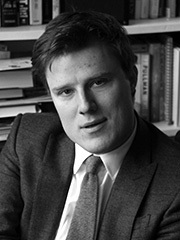Religious liberty is for losers…

From flower shops to bakeries to wedding mills to elite universities, religious liberty has become one of the burning issues of our day. In these varied arenas, a diverse group of folks, who self-identify as Christian, fear that they are losing their religious freedom. Their claims are hotly contested by opponents who fear that the free exercise of religion will lead to discrimination against those who don’t hold religious views.
In an article entitled “Never Take Religious Liberty for Granted,” British culture commentator James Mumford explores some of the complexities that are often missed in these debates. Using historic experiences of the Roman Catholic Church as his examples, he argues that those needing lessons on religious liberty are often brought to their “senses by being brought to their knees.”
Religious liberty is for losers. Only when you’re denied it do you really gauge its value. Only then do you truly understand the preciousness of the right to practise your faith freely and publicly.
Right now American Christians increasingly feel they are losing. With the media stoking the culture wars, many people of faith, pulverised by hostile campaign groups and feeling betrayed by the government, think their whole way of life is under attack. The atmosphere has changed; that’s their sense of it. It has turned hostile, and quickly. A florist in Washington state and a baker in Colorado have been sued for refusing to arrange flowers and bake cakes for same-sex marriages. In their defence they appealed to religious liberty. Why? Because religious liberty is for losers. Last month, the California state university system, comprising 450,000 students on 23 campuses, banned access to Christian student ministries for not allowing non-Christian leaders. This past summer President Obama signed an executive order on LGBT discrimination among federal contractors, sweeping aside the historic exemption for religious organisations.
The apparent novelty of these trends can seem intimidating. It’s therefore worth framing this set of issues — culture wars, legal battles, clashes of rights — by seeking an historical perspective on the intriguing dynamic that communities learn something profound about liberty via the concrete experiences of suffering its loss. Iraq is a case in point, with the fate of the Shias under Saddam Hussein and more recently the Sunnis, not to mention Christians and other minorities. But turning to Europe, modern Catholicism supplies perhaps the most dramatic example. How did an institution adamantly opposed to religious liberty in 1800 become one of its leading advocates by 2000? …
The Church learns from being on the losing side, and what it learns is the necessary reciprocity of religious freedom. If the Church demands them for herself she must “suppose that such liberties are general for all.”
Mumford concludes with a summary of the lessons learned by the Roman Catholic Church, after giving a brief overview of the historical moments in which the lessons were learned.
1. Religious liberty is no political expedient — the Church has learnt that religious freedom must be rooted in the dignity of the human being. People are truth-seekers — therein lies their dignity — and the only authentic way of seeking truth is in the context of free inquiry.
2. But religious freedom must also have real content to it; it can’t be too abstract. The declaration (Dignitatis Humanae, 1965) thus fleshes out what the right to the free exercise of religion must entail: on the one hand, immunity from being coerced into belief; on the other, immunity from being restrained from practising faith.
3. Next, the Church has had to learn that religious freedom will always be threatened if it is construed too narrowly. It must mean more than the right to pray silently to the God of your choosing in the privacy of your own room. It has to include … ministering in public, being allowed to be outward-facing, and to share freely what you believe to be true about the world.
4. Finally, the declaration shows the Church to have at last learnt the deepest lesson of all: “The right of all citizens and religious communities to religious freedom must be recognised and respected.”
James Mumford’s “Never Take Religious Liberty for Granted” was published in Standpoint Magazine and is available online. He is currently the Nicholas Wolterstorff postdoctoral research fellow in The Institute for Advanced Studies in Culture at the University of Virginia.


 October 22, 2014
October 22, 2014 







Comments are closed.